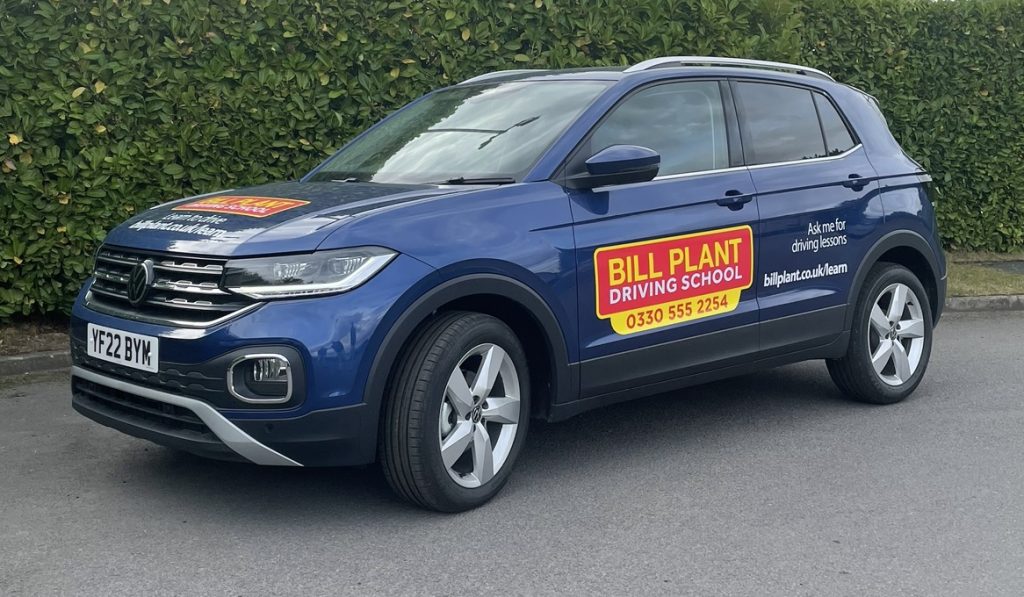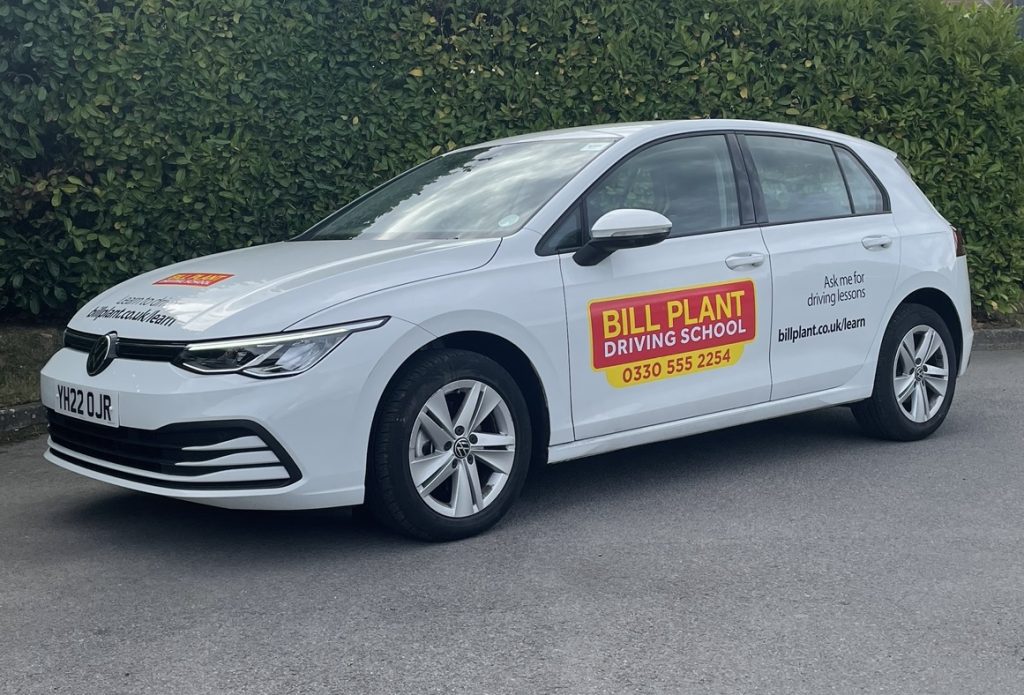
We know that a lot of people worry that they’ll feel nervous before and during their driving test. These feelings are completely natural and can actually help you to concentrate, if channelled correctly. We’ve put together some guidance to help those undertaking driving lessons who are feeling especially nervous either before or on the day of their test to feel calm and relaxed.
Anxiety before your driving test
Trust Your Instructor
You need to remember that by using a DVSA registered driving instructor from a reputable driving school, your driving instructor will be best placed to offer you the most reliable and professional opinion as to whether you are test ready. If you’re at the stage where your test is imminent, be confident that your instructor has given you their blessing, and often, their vehicle, to go and ace your test without them present. Your instructor would not tell you to book your test unless they really did think you were ready and that you had covered all the required topics and gathered sufficient driving experience in a variety of road conditions.
A really good way to prepare and calm any nerves is to always speak openly and honestly about your driving test concerns and trying to establish what exactly is causing the stress. Diagnosing the cause of nerves, be it a general fear of failure or doing a particular exercise, like roundabouts, can be addressed in different ways and so being able to identify these makes a great starting point. You may find, by speaking out loud or writing your concerns down (i.e. getting them out of your head!) that your nerves aren’t indicative of rational concerns, and can be tackled there and then through constructive discussions.
A good example of this is the belief some students have, that without their instructor in the car, they worry about potentially having an accident that their instructor would normally prevent. By explaining this clearly to your instructor, they would make it known to you that even though they won’t be accompanying you on the test, your examiner is specifically trained, to the highest standards by the DVSA, to take control of difficult driving situations if they need to. If you don’t normally worry about collisions with your current instructor, there is absolutely no need to worry about it on your driving test.
Remember, your driving instructor should always be there to help you and wants you to succeed as much as you do!
Keep your test to yourself
We would always recommend, bar maybe a few close family or friends, keeping your driving test a secret. Telling many other people that you have a driving test coming up can add a lot of unwanted pressure, as you might feel anxious about how others might perceive you if you are unsuccessful.
You should always only feel like you have to pass for yourself, not for them as well, as, at the end of the day, it will be you driving not them! What’s more, surprising others will feel great when you do pass and if unfortunately, you don’t pass on that attempt, you won’t have to let the world know either.
Practice manoeuvres
On your driving test, the examiner will ask you to perform one of three manoeuvres that you will have learnt during your driving lessons. This will be one of the following:
- Parallel Park
- Forward / Reverse Bay Park
- Pull up on the right and reverse two car lengths
Make sure that you are confident in doing each of these manoeuvres and have had plenty of practice before sitting your test. The examiner may also ask you to perform an emergency stop, which tests your ability to stop the car quickly without losing control. The emergency stop comes up in approximately one in every three tests and is something you should cover with your instructor prior to your assessment.
Practice with family and friends as much as you can
It is recommended that you have at least 22 hours of private practice with someone who is legally allowed to supervise you (i.e. someone who is over the age of 21 and has held their full licence for over 3 years). While the idea of going out with mum and dad for example may seem stressful, the extra hours out on the road driving can make all the difference in building your confidence and making you feel more at ease when behind the wheel.
Take a mock test
You can ask your driving instructor to complete a mock test with you on one of your driving lessons. A mock test means your instructor will take the examiner’s role and ask you to complete the lesson under driving test conditions. Mock tests will let you and your driving instructor know any areas that may need improvement before your real test as well as allow you to get to grips with what to expect on the day.
Test day nerves
Arrive at the test centre in good time
Examiners have a very strict schedule to keep to, and so it is important that you ensure that you arrive on time, if not slightly earlier than your assigned time slot. Leave yourself with plenty of room when setting off to account for traffic, as if you arrive late to your exam, the examiner may not be able to take you on your test. The last thing you want to do is arrive with a few minutes to go and feel flustered before your test has even begun.
Make sure you have the driving test documents you need
The last thing you need on your test day is to forget something and have to go back home in a hurry before your test starts! Before sitting your test, the examiner will need to see your:
- Provisional driving licence
- Theory test certificate
You will also need to bring a face-covering with you unless you are medically exempt. If you do not bring any of the above items, then the examiner will not allow you to take your test, and you will have to rebook at a later date.
Remaining calm on your driving test
Your examiner isn’t the enemy
Try to remember that the driving examiner is not there to catch you out! They are only there to make sure that you can drive safely and you aren’t a risk to yourself or to other road users. They won’t ever ask you to do anything that you haven’t covered in your driving lessons.
If during your exam, you aren’t able to hear an instruction that the examiner gives you clearly enough, you should always ask them to repeat themselves rather than not understand it and potentially create errors by not following their instructions correctly (it also shows that you were concentrating on the road!).
Prepare well for your driving test eat
Eating something beforehand will help you to concentrate properly for your exam. It is always best to have a light snack about an hour before your test to help increase your blood sugar levels so you don’t feel faint and anxious. You should certainly avoid very large meals as these can make you feel tired and sluggish which is not what you want before your test.
Caffeinated drinks may just cause you to feel more agitated and should be avoided. Having a small bottle of water instead will be much better in the long run in terms of driving test success! Finally, getting an early night’s sleep and ensuring you have been to the toilet before you sit your test are our final recommendations for coming fully prepared on the day of your test to reduce the chances of nerves developing.
Don’t be too hard on yourself
During your test, you may feel like you have made a mistake, but the important thing is that you should always remember to not beat yourself up and let it affect the rest of your driving. Remember, you are allowed up to 15 driving faults for a reason, it is natural a few small things may arise, the important thing is to not let them affect the rest of your driving. Just take a deep breath and carry on like it never happened. You should also be quick to acknowledge that it may even be the case that you haven’t actually made an error – it is the examiner’s opinion that counts!
For more help, read our top driving test tips to help you pass your practical driving test.

